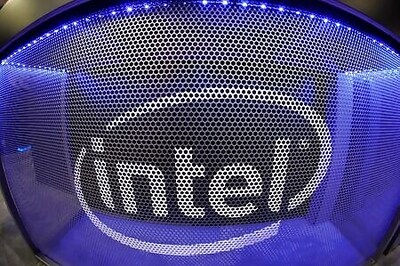
views
New Delhi: I recollect Dinesh Trivedi as a cautious man. In May 2009, ahead of the Lok Sabha elections, he got two economists, Bibek Debroy and Lavish Bhandari, to do a study on West Bengal's economic decline under Communist rule. The study listed five symptoms, five diseases and 30 cures. It was quite provocative. 'The Left Front government is like gangrene,' it said. 'It cannot be cured. It has to be excised out.'
I did not expect the street-fighting TMC to persuade its voters with arguments. This was a novelty. The manifestos of mainline political parties promise and assert, they seldom present facts and reasoning. I sought out Trivedi, who had paid for the study, for an interview. He agreed but not before checking my credentials with a director of our television company.
That episode stuck in my mind. I expected Trivedi to play safe with the railway budget. I have reported and commented on the railways for more than a decade and have watched its decline. Successive ministers have used it to pad their political profile and more. Jaffer Sharief's five-year term in the first half of the 1990s was known for wholesale conversion of track to broad gauge and the controversy over sale of scrapped rails.
Ram Vilas Paswan issued passes freely (more than 7,000 first class AC passes in less than a year for which the Delhi High Court censured him). He created six new zones, including one headquartered in Hajipur, his constituency and was generous with police recruitments. Under Mamata Banerjee's watch, the railways saw the worst operating ratio of 98 per cent: only two rupees were left in every hundred earned after operating expenses and appropriations for pensions and asset wear and tear.
Long distance second-class fares have been almost flat for 20 years. The wholesale price index during this time has risen three times over. A fare hike was necessary, but would not be made. The hike in freight charges a week before the March 14 budget confirmed my suspicion. Successive aam aadmi-loving ministers had walked this inflationary route.
Trivedi was giving them company. True, he had got two studies done on railway safety and modernisation. These, I thought, were exercises to burnish his image. His comments that the railways are a social enterprise (which it is not) deserving of general budget support seemed to me a preparation for populist announcements and an advance move to fob off criticism. Foreign investors were willing to set up engine manufacturing plants at Madhepura and Marhowra. The Prime Minister was urging the Railways, month after month, to call for international bids. Despite lacking funds for investment, its top management was stalling and the minister had not put an end to their antics.
(Incidentally, I wrote about this in the Financial Express and got to know from one of its editors that Trivedi had endorsed my concern when he visited the newspaper for an in-house Q&A session). There was also the matter of political survival. A budget that did good to the railways would be compared with Mamata Banerjee's eminently forgettable ones. If Trivedi shone by contrast, he would risk angering his insecure and imperious boss. During the CNN-IBN discussion on the railways ahead of the budget presentation, I ventured the opinion that grand hollow statements were all one could expect.
How wrong I was! The Trivedi that I met in person was tentative in speech. The man I listened to on March 14 in the Lok Sabha was not at all hesitant. An inner resolve seemed to have steeled him. I saw conviction and statesmanship. It was the best railway budget speech I had heard. His prescriptions were just what the railways needed. He stood his ground and paid the price. His conduct right through was decorous. Such a contrast to the pack wolf-like behaviour of his party men: dummies echoing their master's voice.
It is getting clearer by the day that Mamata Banerjee's poribortan is not a change for the better. Like the communists, she can only tear, not build. Lalu Yadav's criticism of the hike in fares was a bit rich. As railway minister, he did not optically raise fares. But he increased the number of premium priced Tatkal seats on demand 14-fold from 700 a day to 11,000. Nitish Kumar's comments were churlish. His railway budget stopped short at half measures. Kumar did not risk unpopularity. Instead, as railway minister, he deviously raised fares by denominating them as a multiple of second- class rates. A reclassification of freight categories was also done with the same purpose.
Trivedi did not dissemble.
In his reply to the President's address the Prime Minister called Trivedi's 'a good budget' which carried forward the ambition for the railways outlined by his predecessor and party boss Mamata Banerjee in the Vision 2020 document. He must back his statement by not backing down on the fare hikes, citing the support of railway trade unions.
In an earlier post on this website I had advised Trivedi to be a survivor because his presence in the railway ministry was necessary to steer the reforms through. But his departure will not be in vain. He has shown his detractors for the scaffolding they are - as limp as their crumpled kurtas.
Unhappy indeed is the land that is in need of heroes.




















Comments
0 comment